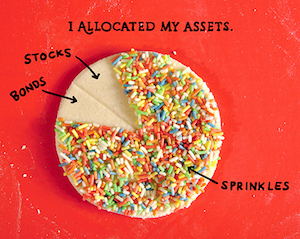The cash price is the price a seller charges a customer given that they plan on paying immediately in cash. Credit card companies charge retailers a commission (a small percentage of the sale), so some stores will charge a different price for people who use credit cards versus cash to make up for the difference.
You may have noticed that gas stations sometimes advertise “$2.50 per gallon–cash || $2.53 per gallon — credit.” $2.50 is the cash price.
